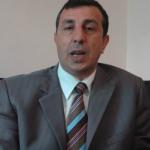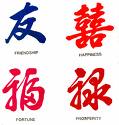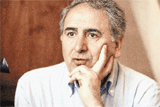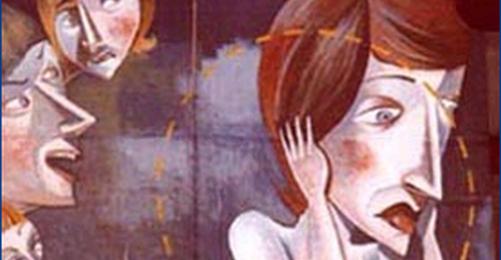Uzun, who has been living in Sweden for the last 25 years, believes that the only way to advance the Kurdish language is to create a Kurdish literary language. And to be able to create a literary language, the writer argues that all the barriers obstructing the free transfer of language and thoughts should be removed.
Uzun was born in 1953 in Siverek, a district of the southeastern Anatolian province of Urfa, near the city of Diyarbakir. The writer, who took part in the board of directors of the Swedish Writers' Union for a while, is currently working at the Swedish Pen Club and International Pen Club.
He is also a member of the World Journalists' Union. The six novels Uzun has written up to today have been translated into Turkish and many other languages. His essays are being published in many magazines and newspapers around the world, in almost 20 different languages.
The Prayer of Tigris
"The Prayer of Tigris" is Uzun's latest novel. It was published in Kurdish in 2001, by "Avesta" publishing house. The novel which was translated into Turkish by Muhsin Kizilkaya, got published in Turkey this month, by "Gendas" publishing house.
"Tigris is reflected in the eyes of a child. This child is Biro, who lived in the 1870s in the area known today as Cizre. Biro witnessed the ascending to the throne of Mir Bedirhan, the historical Kurdish country noble, when he was 16 years old. Little Biro is in love with knowledge, and passionate about voices. The Prayer of Tigris is a novel based on voices. The forgotten voices of the forgotten ones."
Uzun tells about the Kurdish history and culture, by paying attention to the voices of the "Dengbejs," the oral narrators of the Kurdish history and culture. He is bestowing his novel to his children and to the people who do not want to hear any different voices or opinions. "There are no Dengbejs like Biro anymore. You can at least hear their voices in the pages of this book," Uzun says.
Kurdish is my native language
We had a chance to make an interview with Uzun at the trial for his book "Creating a Language." He was present at the court as a witness.
You can speak and write in three different languages, like they are all your native language. What is the reason for you to write your novels only in Kurdish?
My native language is Kurdish. I was born as the child of a Kurdish mother and father. Kurdish became my mother tongue. I grew up among Kurds. I learned Turkish at school. Because I got my education in Turkish, it became my intellectual language.
I went to Sweden when I was very young, in 1977. Because I talked in Swedish the whole time there, Swedish became my intellectual language too.
Kurdish, the language of my childhood, Turkish, the language of my youth, and afterwards Swedish, all became entangled. I can express myself very well in all three languages. I cannot separate between them. I am a writer who can think, write, live and read in three languages.
I think in Kurdish when I am writing. That's why I write my novels only in Kurdish. Because Kurdish is my childhood tongue. A person's childhood becomes a shadow and continuously follows him around. Every single thing a person experiences as a child lives a trace somewhere in his life.
Writing in the language of my childhood gives me a lot of pleasure for this reason too.
Did you ever think that writing your novels in Kurdish would be difficult because you lived in a foreign country for so long?
I found it very difficult to write a novel in Kurdish at first. There was no tradition of Kurdish novels or a modern Kurdish literary language. It was not allowed to develop. I spent a lot of effort to create a modern literary language. I believe that I have succeeded in making a new language and a new literature grow.
I believe that my novels reach both Kurdish and Turkish readers. I have written Kurdish novels that have had four editions. This is an extraordinary progress for Turkey.
The Kurds in Turkey are accustomed to reading in Turkish. And that is another difficulty of writing in Kurdish. Turkish has the means to spread and develop. The readers, the television, universities and institutions all help Turkish to spread and develop as a language. Kurdish does not have those means to spread and develop. As a literary language, it is still toddling. The Kurdish novels, its readers and the intellectual world is only just developing.
Trying to preserve with jealousy
But in the last 10 years, there have been a lot of improvements. It is possible to already talk about a large number of readers.
But this is only the beginning. The numbers of readers I have right now, make up only one percent of the readers I will have in the future. But of course there has been some improvement.
In spite of everything, Turkey is walking in the right path. It is close to removing the obstacles on its way to democracy and integration with Europe.
These efforts are very important. Kurds are very sensitive about their own language. They are sensitive about their language, culture, and cultural heritage. They have fought for these and they are trying to preserve them with jealousy.
What if a good literary language was not created?
I was able to go forward in my writing career through the efforts I spent to protect the Kurdish language and culture. I don't believe that these Kurdish novels would be read or translated into other languages if a good literary language was not created, and if good novels were not written.
I can say that the Kurdish writers have gone a long way in terms of the development of the Kurdish language, the creation of a literary language and good literature; in short, the creation of the Kurdish novel.
Do you consider that writing your novels in Kurdish enables a firsthand account of the Kurdish history and culture? Does this language have such an advantage for Kurdish writers?
Actually, as a writer, I am trying to do many things all at once. First of all, I want to add a new dynamism to the Kurdish language. I am trying to shape the language in a way that it can reach today's readers.
Second of all, I am trying to give Kurds a consciousness and sense of their own history and create or freshen up their collective memory. Finally, I am trying to write a good novel. Not only because I am a Kurd and I write in Kurdish, but I am trying to become a good writer. It is not enough to be a Kurd, or an oppressed person to be able to write a good novel. A novel has its own nature, its own standards and rules. You have to know those standards and rules well, and make Kurdish comply with them.
These elements are necessary and I am trying to fulfill them. Kurdish is a limpid language Kurdish is a very limpid language and that is and advantage. This language has remained pure because of the bans. It conserved its limpidness, plainness and strong configuration in terms of being expressive and poetic.
Writing in Kurdish was a disadvantage for me at first. But then, as I got better in creating a Kurdish novel, these characteristics of the language became important advantages.
I don't try to create new words as I am writing. That is not my job. I am not a linguist. My job is to create a new literary language because I am first a novelist. Languages can only develop if they are used as a literary language. The languages that are not used in writing novels have no chance of surviving, that have no future. Only the languages that have been used in powerful novels have a future.
More concretely, what should be done so that Kurdish can improve more in terms of becoming a literary language? Do Turkish writers support you? Do you have any suggestions for the young people?
In Turkey, there is a strong demeanor for the freedom of thoughts and expression, and a lot of effort is being spent. I feel the support of all the intellectuals and people who are spending effort for the freedom of expression. I don't feel lonely; I am part of the contestation.
At my hearing in Diyarbakir, I will tell that Kurds should be allowed to live, read, and write in their own language, identity and culture. Different languages, cultures and Kurdish do not pose a threat for Turkey. On the contrary, they add to the cultural wealth of this country.
Kurdish people should be allowed to live with their own language and identity. The young people of this country should try to read and write in Kurdish. They should be courageous and do this. They should place importance in being intellectual, and cultural accumulation. In time there will be sufficient sources for the young people to help improve the Kurdish language, and for those sources to be created, effort should be spent. I am trying to spend that effort. (OG/EA/NM)
* Dengbej: In the Kurdish culture, the name given to a person who told stories, tales, legends, folk songs, parables, narratives to the people at sociable gatherings and lounges; a public story-teller. Dengbejs make up the collective memory of a society that has almost no written documents. They keep alive a communal memory. (From of the translator of "The Prayer of Tigris")













